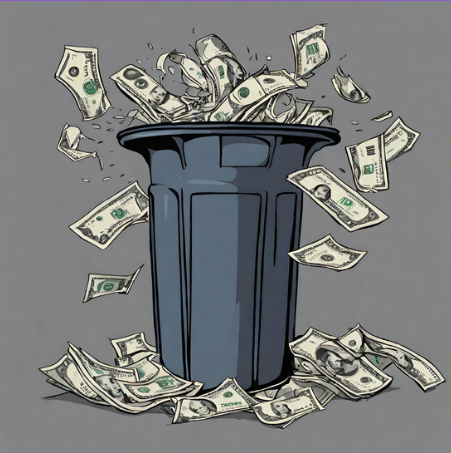US deficit spending increased by $320 billion from 2022 to 2023, adding to the national debt that hovers over US citizens.
Deficit spending is not always bad for a country. Spending more money than what is brought in from taxes encourages an economic change that generally affects citizens positively. But,some Americans believe deficit spending damages our economy by increasing the tax burden on citizens.
“From a business perspective, debt is not always bad,” said PV graduate Atharv Neema. “Debt can generate wealth in the long run because it allows a company to generate an area of potential wealth to be returned back to the company.”
For example, a realtor could take a loan from the bank in order to purchase new property to generate a stream of income. This is viewed positively by the business world, but not all citizens view this idea positively for the US government, as the stakeholders for the debt are the American citizens.
Paying off the debt is its own problem. The average tax burden on each citizen to pay off the debt is approaching $100 thousand, making the national debt almost impossible to recover from.
PV senior Anthony Johnson commented on the tax burden in the US. “It only causes concern, especially with everything financially and economically happening in the US right now,” he said “Average people are the ones needing to deal with the debt crisis currently, and in the future, the crisis will likely be worse and it is going to be a huge hit to our country.”
Deficit spending doesn’t show signs of slowing down. In the midst of the COVID-19 pandemic, stimulus packages were passed by congress, causing the deficit to be well over $2.5 trillion in both 2020 and 2021. Deficit spending decreased in 2022 to $1.38 trillion, which is significantly lower than previous years, but 2023 deficit spending reached $1.7 trillion on Oct. 27.
The national debt is continually increasing due to the government’s deficit spending. Eventually, the debt will need to be paid off, but until that day, deficit spending will continue to add to the unbearable debt.









